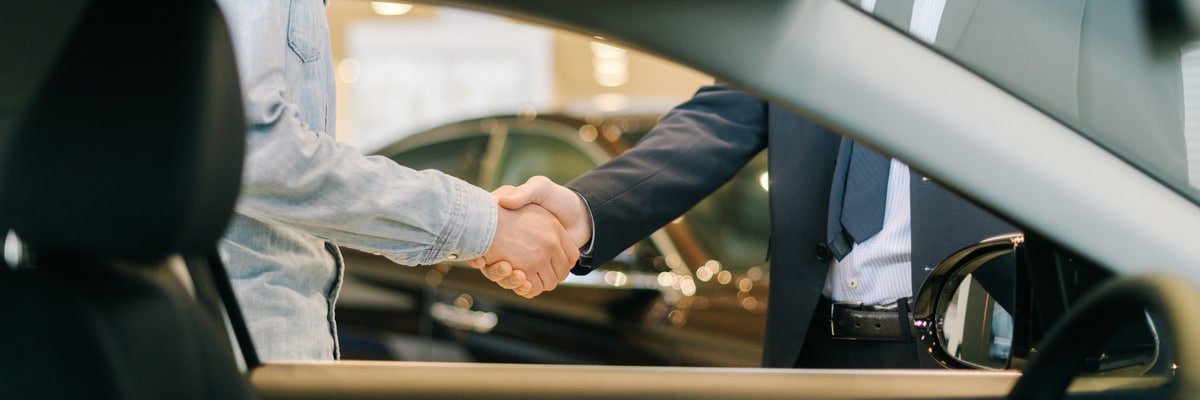New vs. Used Cars: What Should You Buy?
July 29, 2021
Shopping for a car is already tough. Then factor in the decision to buy a new or used car and you can easily start to feel overwhelmed. There are pros and cons to each which we will be covering in our latest article (this one): New vs. Used Cars: What Should You Buy?
New Vs. Used Cars Stats
According to CarandDriver.com and the National Automobile Dealer Association, the average person owns about 13 vehicles in their lifetime, with each averaging about $30K. If you were to only buy used cars, you could save almost $130K instead of buying new cars.
No matter what, when shopping for a used or new car you have several options to choose from. The most obvious choices are the make, and model of the car. However, the decision to go new or used is beginning to be as important as the make and model. As technology improves, used cars maintain functionality much longer than in previous years. Below we list out the pros and cons of buying a used car or new car.
New Vs. Used Cars – Pros and Cons
So, if you’ve made it this far then you are probably on the fence and are asking yourself, “should I buy a new car or should I buy a used car?” There are arguments for both, so let’s get to it.
Pros of Buying a Used Car | New Vs. Used Cars
Used cars are less expensive.
-
- A lot of buyers won’t even consider a new car simply because they are significantly more expensive than a used car. In addition to the financial benefits, there are more than a few pros to weigh when making your decision to buy a new or used car.
Depreciation isn’t quite as bad.
-
- By going with a used car instead of a new car, you avoid the depreciation and let the first owner take the hit. Since the car has already depreciated quite a bit that means the price to buy is considerably lower for you.
Financing is less risky.
-
- Depreciation strikes again. When you buy a new car you risk the value of the vehicle is lower than what you owe on your car loan. This is often referred to as being “underwater”, or being “upside-down” on your car loan. Having negative equity on a new car loan can be devastating to your credit and could result in you having to pay for a car that you don’t have anymore. Because a used car is less expensive, the car loan is going to be less and depreciation has already struck so you are much less likely to be upside-down on your loan.
Insurance rates are lower.
-
- Depreciation works in your favor this time. Insurance companies will often give you a lower rate simply because the used car has already depreciated. If a used car is damaged or lost, the cost to replace it is lower.
Say goodbye to stress.
-
- In regards to your car at least. When you purchase a used car, you know it has already been on the streets for a while. Buying a new car adds stress because you’re trying to avoid every road imperfection so it doesn’t wreck your shiny new car. A used car has already seen some wear and tear so you are less likely to stress out if you aren’t able to avoid a pothole or two.
The resale value is solid.
-
- Used cars don’t depreciate as a new car does. Even with a few more dings, seat spills, and miles, you will likely be able to make a profit when you are looking to sell. Used cars hold their value a lot more than new cars do.
 Cons of Buying a Used Car | New Vs. Used Cars
Cons of Buying a Used Car | New Vs. Used Cars
Reliability is in question.
-
- For the same reason, a used car is less expensive its reliability could be at risk due to its previous owner. It doesn’t matter how many Carfax reports you run; you’ll never be 100% certain of the used car’s history.
Compromises will be made.
-
- Buying a new car lets you pick the features, the color, and everything in between. No compromises are made. When you shop for a used car, you are restricted to what is available in the market. Maybe a car has the right color but doesn’t have the moonroof you want. Or it has a backup camera but it isn’t all-wheel drive. You don’t have the flexibility you do when you buy a new car.
What you pay for is what you get.
-
- When you buy used you are getting the car as is, there’s no warranty to back it up and less protection. This is one of the bigger reasons buying used is a riskier option.
Financing is likely more expensive.
-
- Used cars, at least from the eyes of the lenders, are slightly higher risk so they charge higher interest rates when granting a loan. So, your monthly payment could be higher just because the car has had previous owners. Lock in your interest rate by getting pre-approved for your loan to avoid the higher interest rate.
Pros of Buying a New Car | New Vs. Used Cars
It’s easier to shop for a new car.
More financing options and better financing rates.
-
- Buying a new car vs a used car makes the decision for whatever financial institution you are financing with easier. Lenders look at the risks involved with financing a used car. For lenders, the financial risk is higher when buying a used car versus a new car.
New car deals are often available.
-
- The manufacturer wants you to buy their cars. They make the new car purchase that much more appealing by adding offers like cashback or 0% financing for X amount of days. These offers are available and able to save you thousands over the life of ownership.
Warranties are there to provide peace of mind.
-
- New cars come with a manufacturer warranty that is included in the cost of the vehicle. The warranty can include bumper-to-bumper coverage for a certain number of years or up to a certain mileage.
Advanced technology.
-
- New cars have improved safety, fuel efficiency, connectivity, and more which helps the car last longer. If your car has automatic braking or blind spot detection it reduces the risk of being in an accident.
There is no vehicle history to analyze.
-
- Buying a new car means you are the first owner. Buying a used car means you would be at minimum the second owner. A lot can happen in the years that proceeded you as the current owner. You don’t have to worry about what the car has been through when you buy a new car.
That new car smell.
-
- Let’s face it. Who here doesn’t love the smell of a new car that is fresh off the semi-truck? There is just something about it that appeals to everyone. If you buy a used car, you miss out on that fresh feeling smell.
Cons of Buying a New Car | New Vs. Used Cars
More expensive means more debt.
-
- A new car is usually more costly than a used car. You’ll need to take out a larger loan than if you were to buy a used car. A larger loan equals more debt. More debt means higher monthly payments. Higher monthly payments mean you’ll likely be paying more interest over the life of the loan.
Insurance is more expensive.
-
- The cons of buying a new car vs a used car boil down to how expensive everything is, which includes insurance. Insurance companies look at the overall value of the car you bought. A new car is expensive so the cost to insure it goes up with the value of the car. A used car is less expensive thus the cost to insure is less. It may seem obvious to you, but a lot of times the buyer forgets that point. Then, after buying a new car they are perplexed when their insurance payment goes up.
Depreciation.
-
- A new car starts losing value the second it leaves the lot. The depreciation rate is high those first couple years after buying the new car. However, the longer you own it the more the deprecation rate levels out. Wait to trade in or sell your new car until you know that the value is higher than what is left on your loan.
Sales tax is expensive.
-
- By now you are probably starting to see a theme when it comes to buying a new car. It’s more expensive in almost every facet of the sale. That includes the taxes included in the price of the new car. The sales tax on a new car is considerably higher than a used car.
You must buy from a dealer.
-
- While we don’t really see this as a con to buying a new car, we are going to include it in the list here. Use options like Craigslist, Facebook Marketplace, Edmunds, and more to utilize in your car search. Buying a new car lets you pick from a few different dealers in the area and that is about it.
 New Vs. Used Cars – Bottom Line
New Vs. Used Cars – Bottom Line
We’ve covered the pros and cons of new vs. used cars. But at the end of the day, you need to factor in a lot more than just the bullet points above. You need to consider your budget, the risks of buying a used car from a private seller, what to look for when evaluating a used car, etc. A car is a big purchase and one you shouldn’t take lightly. We are here to help guide you through that process and make sure your car buying experience is as nice as possible.
Here are a few additional articles to use to help make your decision:
How to Buy a Used Car on Craigslist
What To Look for When Test Driving a Used Car
What Kind of Down Payment Do I Need to Finance a Car?
Contact Us